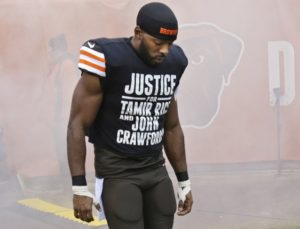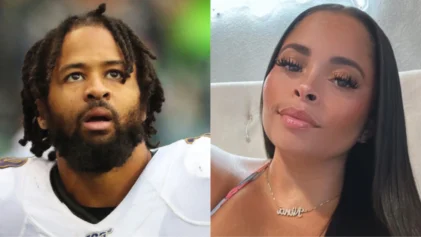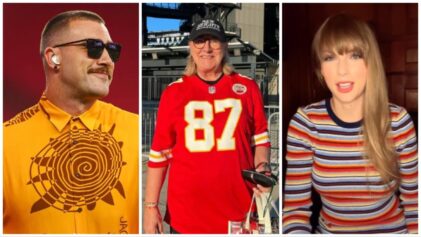
The Cleveland Police represent the hit dog in the case of Cleveland Browns receiver Andrew Hawkins. He wore a t-shirt prior to their game Sunday against the Cincinnati Bengals that read: “Justice For Tamir Rice and John Crawford,” two Blacks who were recently shot and killed at the hands of Ohio police officers.
Those seven words apparently infuriated the cops. They are not only “demanding” an apology from Hawkins, but they insulted him and other athletes along the way, saying, essentially, that an athlete has no right to protest what the police do.
This reaction speaks to the sensitivity police have about the backlash protesters have displayed about the rash of Black men killed at the hands of police hired to protect them. More directly, it speaks to the police officers’ guilty conscience.
What other reason is there for such an aggressive and hostile retort to one making a statement on a t-shirt?
Here’s what Jeff Follman, the president of the Police Patrolman Union in Cleveland, said to newsnet5, a Cleveland news station: “It’s pretty pathetic when athletes think they know the law. They should stick to what they know best on the field. The Cleveland Police protect and serve the Browns stadium and the Browns organization owes us an apology.”
“He’s an athlete. He’s someone with no facts of the case whatsoever,” Follmer added to the Cleveland Plain Dealer. “He’s disrespecting the police on a job that we had to do and make a split-second decision.”
Really? What does him being an athlete have to do with understanding that a Black 12-year-old kid and a Black man holding a toy air gun at a Walmart were needlessly shot by police? All it takes is discernment to have the position Hawkins had—a position, by the way, shared by millions of Blacks and others across the country.
And aren’t they supposed to be trained to make the right decision, not the extreme, deadly decision? And it has been too frequent where the target of these “split-second decisions” are Black men. People are tired of it.
And that’s what really bothers the cops: Black people are not giving them a pass any longer. The rage and disappointment is not flaming out. The protests continue and the demands for answers and, more importantly, justice persist.
They were hoping it would have faded to black by now. Not. People are outraged. And athletes are showing that they have the reach to share the message of Black people’s demand for change. The Georgetown men’s basketball team, among other college public protests and shows of support for justice, last week wore, “I Can’t Breathe” t-shirts, in recognition of Eric Garner, killed in a choke hold on Staten Island by police. As did the Notre Dame women’s basketball team.
The St. Louis police “demanded” an apology a few weeks ago from the NFL and the St. Louis after five Rams players entered their game with their hands up—the posture some witnesses said Michael Brown held before being shot to death by Ferguson police Darren Wilson. They didn’t get one.
And the Cleveland police won’t get one, either.
The Browns issued a statement, saying: “We have great respect for the Cleveland Police Department and the work that they do to protect and serve our city. We also respect our players’ rights to project their support and bring awareness to issues that are important to them if done so in a responsible manner.”
In other words, kick rocks.


